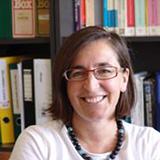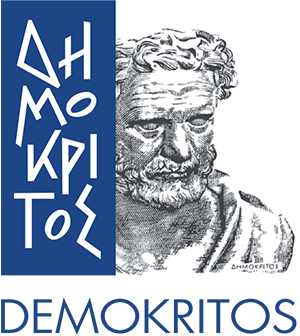Mergia Konstantina (Dina)

Dr K. Mergia is responsible for the Fusion Technology Programme of NCSRD and coordinator of the related activities of fifteen (15) researchers. She is supervisor of four PhD theses in the field of Fusion Materials. Member of the Fusion for Energy (F4E) governing board. Greek representative in the European Neutron Scattering Association, evaluator of the RADIATE project (access to ion beam centers), member of the editorial board of the Hellenic Neutron Association (HENA) newsletter.
Her research topics refer to fusion materials research, radiation damage, plasma facing materials and components, phase transformations and transport phenomena, ceramic-metal interactions, surface oxidization phenomena, material engineering (porosity, internal stresses, oxidation barriers, materials joining) and magnetic materials (FeCr alloys and steels, magnetic thin films, spin-glasses).
She has been scientific responsible and work-package leader for several European and IAEA projects and tasks of the European Fusion Programme. The total funding obtained for these projects was 4.5 M€ (2003-2020). Research areas of these projects are on fusion materials, materials for extreme environments and aerospace materials and components.
She has authored more than 80 publications in peer reviewed journals, more than 100 publications in conference proceedings and more than 100 scientific reports. She is acting as a referee in 12 journals. She has strong collaborative links with many eminent European Research Centres and Universities such as Rutherford Appleton Laboratories, UK, SCK CEN, Belgium, Culham Centre for Fusion Energy, UKAEA, UK, Helmholtz-Zentrum Dresden-Rossendorf, Germany, TECNALIA Research and Innovation, Spain, Technical University of Turin, Italy, Polish Academy of Science, Institute of Physics, Poland. These collaborative links have been materialized through common publications and research projects.
She has developed extensive laboratory facilities in the areas of a) structural characterization of materials from nano- to macro-scale (X-Ray diffractometer, X-Ray reflectometer, field emission scanning electron microscope with energy dispersive spectrometer, X-Ray fluorescence spectrometer), b) mechanical properties (nano- and micro-depth sensing indenters, universal testing machine, impulse excitation apparatus), c) defects in materials (positron annihilation lifetime spectrometer), d) electrical properties of materials (electrical apparatus), e) sample fabrication and processing (magnetron sputtering apparatus, high temperature systems), and f) metallography (optical microscopes, polishers, electropolisher).

